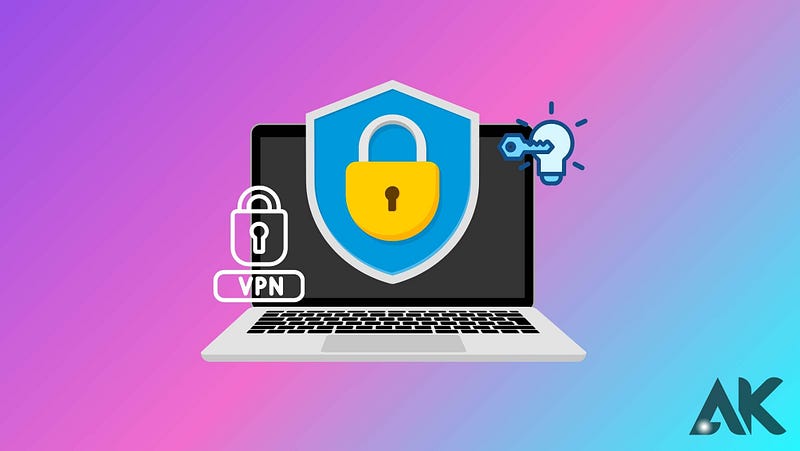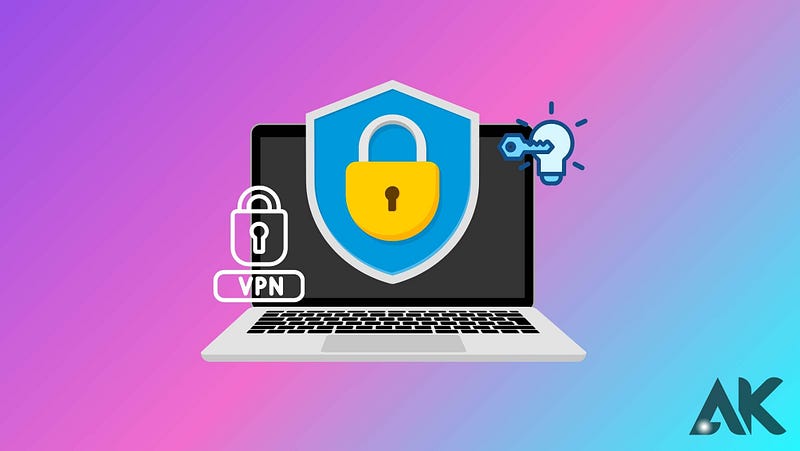
In today’s digital world, protecting your online privacy is no longer optional — it’s essential. With cyber threats, data breaches, and invasive tracking becoming common, a Virtual Private Network (VPN) serves as a powerful tool to safeguard your personal information. Whether you’re a casual browser or a professional handling sensitive data, understanding how a VPN works to protect your privacy is crucial. Let’s dive into the ultimate guide on VPNs and why you should consider using one.
What Is a VPN?
A VPN is a service that creates a secure, encrypted tunnel between your device and the internet. Routing your data through this tunnel keepsyour online activities private, even on public networks. Think of it as a digital invisibility cloak, hiding your identity and location from prying eyes.
Key Ways a VPN Protects Your Privacy

1. Encrypting Your Internet Traffic
VPNs use advanced encryption protocols to scramble your data, making it unreadable to anyone trying to intercept it. This means hackers, governments, or even your internet service provider (ISP) can’t see what you’re doing online.
2. Hiding Your IP Address
When you connect to the internet, your device uses an IP address that can reveal your location and identity. A VPN masks your real IP address, replacing it with one from its server network. This helps you browse anonymously.
3. Securing Public Wi-Fi Connections
Public Wi-Fi networks are notorious for being insecure. A VPN ensures your data remains safe by encrypting it, even if the network itself isn’t secure.
4. Bypassing Geographic Restrictions
While primarily a privacy tool, VPNs also allow you to access content restricted to certain regions. This is particularly useful for streaming services and accessing censored information.
5. Protecting Against Tracking and Ads
Many websites use trackers to monitor your behavior for targeted ads. A VPN prevents these trackers from collecting your data by obscuring your online activity.
Who Needs a VPN?
- Frequent Travelers: Protect your data on untrusted hotel or airport Wi-Fi networks.
- Remote Workers: Safeguard confidential company data while working from anywhere.
- Privacy Enthusiasts: Maintain anonymity and prevent unwanted surveillance.
- Streaming Fans: Unlock global content libraries while keeping your identity hidden.
Choosing the Right VPN
With numerous VPN providers available, selecting the right one is critical. Here’s what to look for:
- Strong Encryption: Opt for VPNs with AES-256 encryption.
- No-Log Policy: Ensure the VPN doesn’t store your browsing data.
- Global Server Network: Choose a provider with servers in multiple countries.
- High Speed: Ensure minimal impact on your internet speed.
- Cross-Platform Support: Pick a VPN compatible with all your devices.
Potential Drawbacks of Using a VPN
While VPNs are an excellent tool for privacy, they’re not foolproof. Here are some considerations:
- Cost: High-quality VPNs often come with subscription fees.
- Slower Speeds: Encryption and rerouting can slightly slow your internet connection.
- Not 100% Anonymous: While a VPN increases privacy, complete anonymity requires additional measures like using Tor.
Tips for Maximizing Your VPN Privacy
- Always connect to the VPN before browsing, especially on public networks.
- Avoid free VPN services, as they might log and sell your data.
- Regularly update your VPN software to stay protected against new threats.
- Combine your VPN with other privacy tools like ad blockers and antivirus software.
Conclusion
A VPN is a vital tool for anyone looking to maintain their online privacy. From encrypting your data to masking your identity, it provides comprehensive protection against various digital threats. While no tool can guarantee 100% privacy, a VPN combined with smart browsing habits can make your online experience safer and more secure.
So, whether you’re streaming your favorite show, shopping online, or simply browsing, a VPN ensures that your privacy remains intact in an increasingly connected world.
In case you have found a mistake in the text, please send a message to the author by selecting the mistake and pressing Ctrl-Enter.
2024-12-05 06:29:13